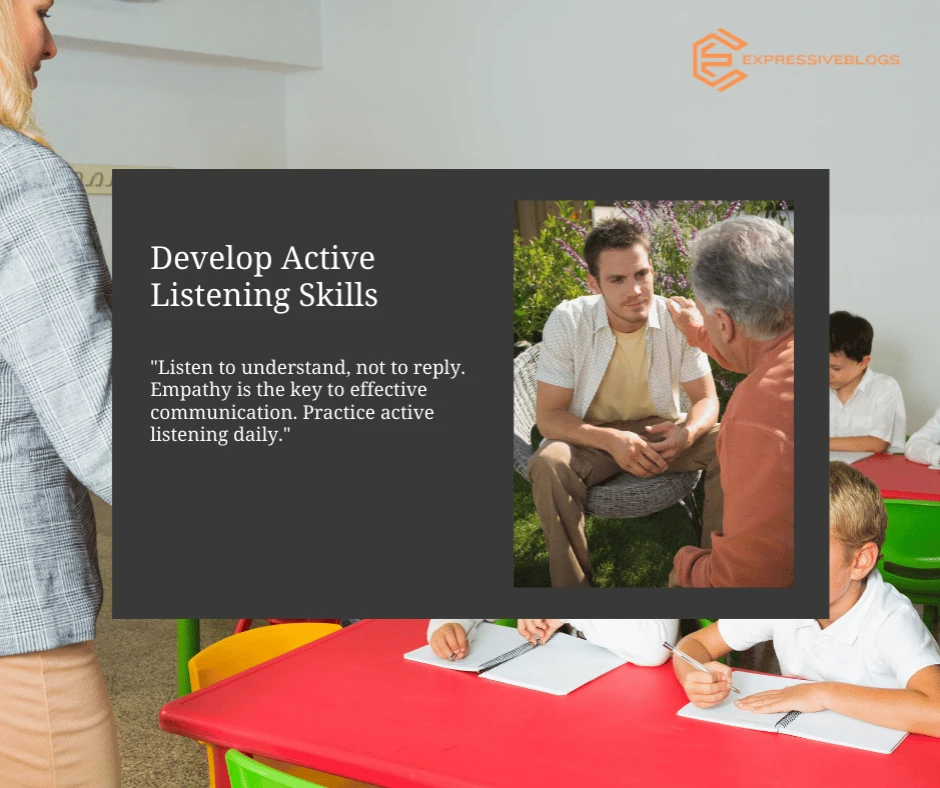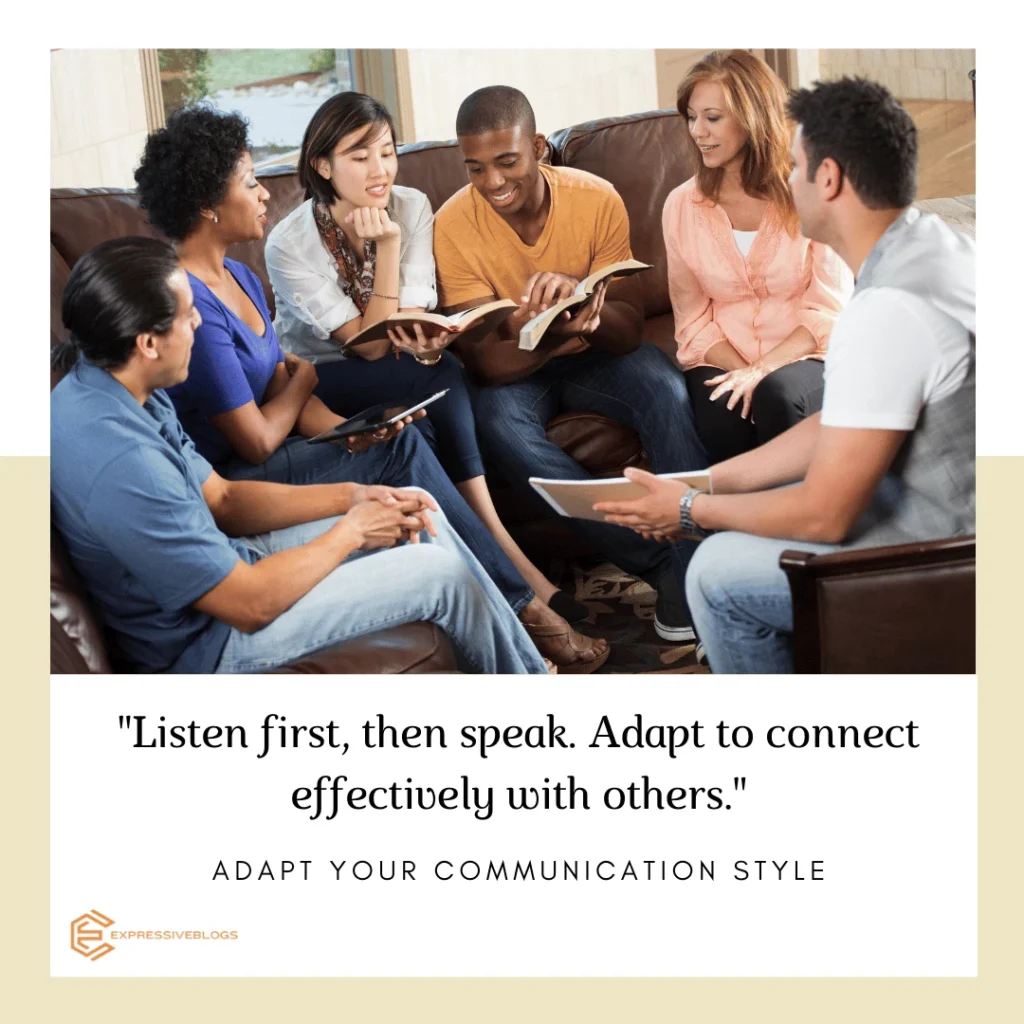Improving Communication Skills, Living in today’s world, which is characterized by incredible speeds, it is crucial to communicate efficiently not only at work but also within a personal environment. Regardless of the setting, from a formal business or a board meeting, a conversation with friends, or even putting your thoughts in writing, the effective presentation of oneself’s ideas, as well as the comprehension of the ideas of others can alter the course of relationships and professional growth.
In more detail, this blog post will overview different approaches to improving communication skills of businesspeople, with a focus on major methods that would enhance the quality of the conversation and the level of perception.
The Importance of Communication Skills
Analyzing the strategies for improvement, we should first mention that effective communication is essential in every nursing care. Since it is the backbone of all relationships in the sense that people have to be open with each other and have to be able to rely on the other party, effective communication entails the four pillars of relationship. Various studies have established that those employees, managers, and leaders who possess good communication abilities have high chances of excelling in their chosen vocations and/or professions, mentoring successful teams, and possessing healthy interpersonal relations. In addition, the connection between communication strength and better emotional intelligence as well as the capacity to deal with intricate relations of social contacts.
Assessing Your Current Communication Skills
However, to make a leap to the process of self-enhancement of communication skills, it is very crucial to evaluate the existing capacities. It is helpful to think about or ponder over because it allows one to determine his or her abilities as well as weaknesses. Consider the following questions:
- Do I express my thoughts clearly and concisely?
- Am I an active listener, or do I often interrupt others while they speak?
- Do I adapt my communication style to fit different audiences?
- How comfortable am I with nonverbal communication?
- Do I provide constructive feedback in conversations?
With such patterns, one can therefore establish a starting point hence someone can be able to build on the existing competence.
also read: From Startup to Success: Top 9 business ideas pakistan
Key Strategies for Improving Communication Skills
1. Develop Active Listening Skills

Communication is the foundation of any organization and active listening is a critical component of communication. This skill consists in not only listening to the words pronounced but also, the emotions and the intentions of the interlocutor. To enhance your active listening skills, practice the following techniques:
- Maintain Eye Contact: Sadly this shows the speaker that you are listening and fascinated by what he or she has to say.
- Avoid Interrupting: Let the speaker freely finish what they have to say before interrupting them. This is thoughtful and considerate as it shows the employer listens to the employee.
- Paraphrase and Summarize: Following the complete delivery by the speaker, restate what you have understood to avoid misunderstandings, as well as demonstrate your attentiveness.
- Ask Open-Ended Questions: Get responses with follow-up questions that are more than simple yes/no answers, and broaden the conversation.
2. Cultivate Clarity and Conciseness

Written and oral communication ensures that there are no distortions in what is being passed between the sender and the receiver. Here are strategies to enhance the clarity of your communications:
- Organize Your Thoughts: To organize your thoughts whenever you are about to use the spoken or written word, pause for a moment to plan. This is particularly important because the kind of language used in academic writing can be rather complex hence using bullet points or outlines to highlight your key points can prove very useful.
- Use Simple Language: Policy should not be worded with professional terms when a layman’s term would suffice. This makes your message go around and be understood by many people.
- Be Direct: Be concise especially when dealing with people at work for due to busy schedules the meeting times may be limited. Do not beat around the bush when pronouncing your message; state your purpose in the early part of your message.
3. Adapt Your Communication Style

Talking with peers is not the same as talking to subordinates or seniors, during a formal meeting people do not have to communicate in the same manner as during an informal gathering. Adapting your style to fit your context can significantly enhance the effectiveness of your interactions:
- Know Your Audience: It is equally important always to consider the background, preference, and level of knowledge of the people being addressed. Thus, adapting the content to the target audience members guarantees that the message will be perceived better.
- Choose the Right Medium: Decide whether it is appropriate to share the message through email or if it would be more appropriate to talk in person. Every method has its strengths as well as weaknesses.
- Match the Tone: Choose an appropriate language depending on the audience and the nature of the incident. These may include one’s gender, age, class, educational background, religious beliefs, and cultural differences to mention but a few Hence, while responding to questions in formal settings one may be required to be formal and less casual while in informal setting one may afford to be casual and informal.
4. Master Nonverbal Communication

Various aspects that relate to sign language include; facial expressions, nonverbal movements of the body, and gestures. To master nonverbal communication:
- Be Aware of Your Body Language: Focus on your posture because folks can easily read the emotions on your face and decipher your intentions. Some of the first may include a relaxed posture such as having open arms, and slightly leaning forward may be perceived to be in a receptive state.
- Observing Others: Speaking of body language, one should pay attention to the gestures and other signals of the persons they are communicating with. It can also be informative on how involved they are and their mood at the time the interaction is taking place.
- Use Appropriate Gestures: These can assist in adding emphasis to what has been stated but this should only be done if it helps make the points come out vividly and not as interruptions.
5. Enhance Empathy and Emotional Intelligence

Cultural sensitivity involves appreciating the feelings of other people, or individuals being in a position to infer or even sympathize with people. Cultivating empathy and emotional intelligence can significantly improve your interactions:
- Put Yourself in Others’ Shoes: This is particularly because one can try to see things from the other person’s or people’s perspective and their emotional outburst as well in a bid to be in a position to try and fathom what they need or feel.
• Express Empathy: Emotional support the demonstrators and anyone you meet. Techniques that can be used include statements such as ‘I know what you might be going through’.
• Manage Your Emotions: Optimally, it is well-mannered, and this refers to not only good posture and a calm face but also keeping one’s emotions in check during confrontational scenarios. The findings highlight the fact that more effective self-regulation can increase the level of productivity during the discussion.
also read:Cyber Security Course Pakistan: Protect Your Digital World
6. Seek Feedback and Continuous Improvement

The use of feedback is always helpful no matter the field; thus, it applies to the improvement of communication skills as well. To foster continuous improvement:
- Request Constructive Feedback: Go to your friends, colleagues, and other close relations and seek their suggestions about your communication manner. Then be ready to listen, accept, and incorporate what they have to say.
• Observe Role Models: Some of the techniques that could be adopted include the following; Assess the communicators you know well in your social and working life and analyze how they communicate. Observe how they deal with people and adjust their strategies that appeal to you.
• Practice Regularly: As with any other skill, communication rises to the level of proficiency, which is being exercised regularly. Talk to people, get on the floor and present yourself or your ideas, and write often to sharpen your skills.
Conclusion
Enhancing communication skills is a lifelong process and it is always advisable to dedicate time to it. Thus, the effectiveness of the communication can be enhanced by such recommendations as the improvement of active listening skills, clearer and more concise language, the adaptation to a certain context, legible nonverbal communication, empathy, and the use of feedback. Thus, the given skills need to be considered crucial to improving an individual’s interpersonal relationships as well as providing a foundation for present and future career advancements. Take it as the cross you need to bear to become the best communicator that you can be, and then notice how positive a turn your communication becomes.
FAQS
Q. What are the key components of effective communication?
Verbal, body language and writing skills make the category of communication necessary in managing organizational relationships.
Q. How can I improve my active listening skills?
The goal is to let the person speak, try to look at the person directly in the eye, and do not interrupt and affirm.
Q. What is the difference between assertive, aggressive, and passive communication?
Consequently, the assertive communication style instantly communicates needs, the aggressive communication style leads, and the passive communication style averts needs expression.
Q. How can I improve my public speaking skills?
Profession, rehearsal, familiarisation of the audience, utilization of graphics, and managing states of anxiety.



